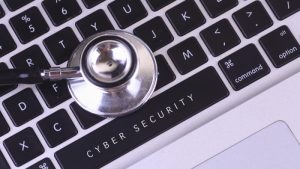The state of Georgia said it found evidence of an attempted hack on its voter registration database by a Department of Homeland Security device.
Cyrus Vance, district attorney for New York County, renewed a call for Federal legislation requiring Apple to make iOS warrant-friendly.
To solve the problems of veteran unemployment and unfilled cybersecurity jobs, Virginia Gov. Terry McAuliffe announced the launch of Cyber Vets Virginia, an initiative that aims to provide veterans with cybersecurity training and education.
Virginia Gov. Terry McAuliffe aims to encourage greater high school interest in cybersecurity through the launch of Virginia’s “NSA Day of Cyber” School Challenge, which exposes high school students to virtual cyber scenarios and the tools NSA agents use in dealing with cyber.
Due to the many ways that attackers could affect the results from voting machines, those working on Election Day should have better training and retain “a pinch of paranoia,” according to Tony Cole, vice president and global government chief technology officer at FireEye.
In order to educate law enforcement officials on how to deal with digital evidence and cyber-based crimes, the FBI has created the Cyber Investigator Certification Program, a project that, in partnership with Carnegie Mellon University, aims to address the concerns of the International Association of Chiefs of Police (IACP) over a lack of affordable cyber training options for officers.
Later this month, the Healthcare Information and Management Systems Society will open its new, interactive Cybersecurity Hub at the HIMSS Innovation Center, within the health IT floor of the Global Center for Health Innovation, in downtown Cleveland.
Chris Buse, the state of Minnesota’s first chief information security officer (CISO), was named Public Sector Visionary of the Year at the Cyber Security Summit.
The Department of Health and Human Services awarded $350,000 to help its partners in the health care and public health sectors ward off cyberattacks.
Well-trained teams and basic training are the best forces against health data attacks, according to critical infrastructure experts.













